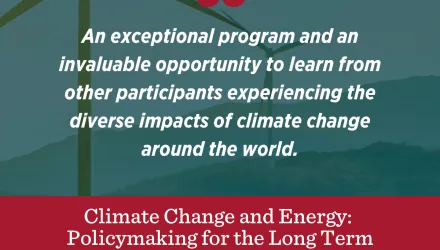Overview
African agriculture is currently at a crossroads, at which persistent food shortages are compounded by threats from climate change. But, as this book argues, Africa faces three major opportunities that can transform its agriculture into a force for economic growth: advances in science and technology; the creation of regional markets; and the emergence of a new crop of entrepreneurial leaders dedicated to the continent's economic improvement.
Filled with case studies from within Africa and success stories from developing nations around the world, The New Harvest outlines the policies and institutional changes necessary to promote agricultural innovation across the African continent. Incorporating research from academia, government, civil society, and private industry, the book suggests multiple ways that individual African countries can work together at the regional level to develop local knowledge and resources, harness technological innovation, encourage entrepreneurship, increase agricultural output, create markets, and improve infrastructure.
The New Harvest is a product of the Agricultural Innovation in Africa Project, funded by the Bill and Melinda Gates Foundation.
Features:
- Integrates research and policy ideas from an international panel of some of the most influential thinkers on agricultural development
- Presents enactable policy ideas for advancing agriculture throughout Africa, at the national and regional levels
- Includes a wealth of case study material from Green Revolution and educational initiatives in India, China, and throughout Latin America
Praise for The New Harvest
"Calestous Juma draws on a rich harvest of research to write a convincing analysis of the importance of innovation and entrepreneurship in the agricultural sectors of Africa. Hopefully, it will be widely read by scholars and policy analysts across Africa as well as outside. It is a great book."—Elinor Ostrom, Professor of Political Science, Indiana University, and 2009 Nobel Laureate in Economic Sciences
"Calestous Juma has once again produced a book that will be an important reference for scholars, researchers and practitioners in their search for ways to break the persistent conundrum that is Africa's failure to properly exploit its huge agricultural potential. The book reveals his exceptional ability to express ideas that will be relevant to the emerging trends in Africa's agricultural and political economy."—Monty Jones, Executive Director, Forum for Agricultural Research in Africa, and 2004 World Food Prize Laureate
"This book presents a timely analysis of the importance of infrastructure in improving Africa's agriculture. Leaders at national and state levels will benefit immensely from its evidence-based recommendations."—Goodluck Jonathan, President of the Federal Republic of Nigeria
"This book is a forceful reminder of the important role that African women play in agriculture on the continent.is critical that they are provided with equal educational opportunity as a starting pointbuilding a new economic future for the continent."—Ellen Johnson Sirleaf, President of the Republic of Liberia
"New technologies, especially biotechnology, provide African countries with additional tools for improving the welfare of farmers. I commend this book for the emphasis it places on the critical role that technological innovation plays in agriculture. The study is a timely handbook for those seeking new ways of harnessing new technologies for development, including poor farmers, many of whom are women."—Blaise Compaore, President of Burkina Faso
"The New Harvest the importance of global learning in Africa's agricultural development. It offers new ideas for international cooperation on sustainable agriculture in the tropics. It will pave the way for improved collaboration between Africa and South America."—Laura Chincilla, President of Costa Rica
Read "Africa Can Feed Itself in a Generation"—A policy brief based on The New Harvest—online: http://belfercenter.ksg.harvard.edu/publication/20685
Author's Note
It has come to my attention that some sections of The New Harvest contain inadvertent errors of attribution. I take full responsibility for the errors and sincerely apologize to the original authors as well as my readers. I am contacting the original sources of the relevant information. I am also revising the book to rectify the errors. — Calestous Juma
Juma, Calestous. “The New Harvest: Agricultural Innovation in Africa.” Oxford University Press, January 2011





